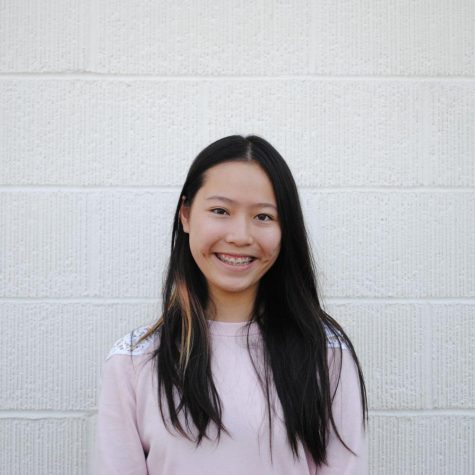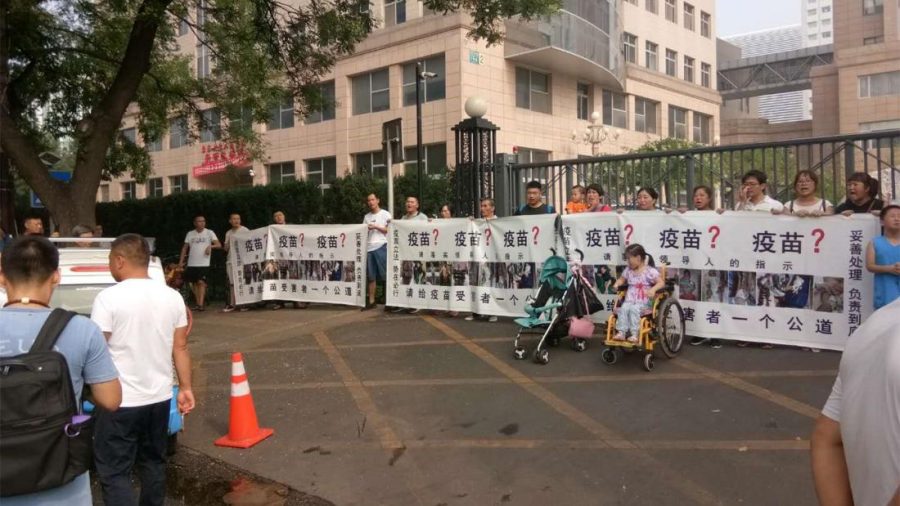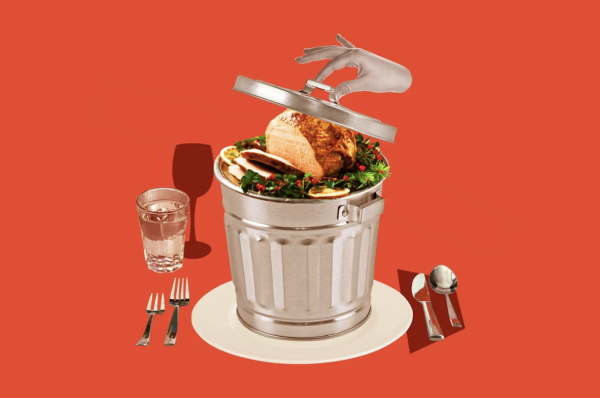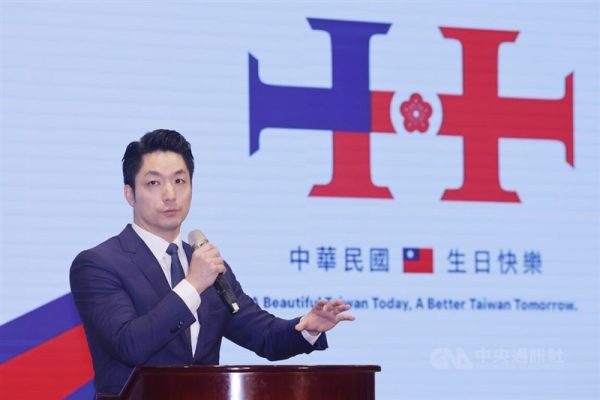Chinese Vaccine Scandal Sparks Rare Public Protest
Photo courtesy cnn.com
Protest over China’s fake vaccine scandal.
On the international stage, President Xi boasts of a “Chinese Dream” of creating a nation bound by unity to achieve strength and prosperity. That goal faced a considerable setback when a massive fake vaccine scandal in July turned China’s own citizens against their government in passionate protest. Such large-scale demonstrations of public dissatisfaction had been unheard of since the infamous Tiananmen Square protests decades ago. Concerns for child safety had been the rallying cry for parents to speak out.
It was revealed that a major drug producer in northeast China, Changchun Changsheng, made at least 500,000 doses of vaccine for diphtheria, tetanus and whooping cough that violated pharmaceutical industry standards, resulting in a nationwide scandal. This made the vaccines administered to thousands of young children and infants useless and defenseless against deadly diseases. According to the Washington Post in July, no fatalities resulted from the crime. However, the scandal has rattled public confidence and “sparked dissatisfaction that could seriously damage the government’s legitimacy,”rekindling the public’s fears of corruption and abuse in the nation’s vast pharmaceutical industry.
Furious parents with their children in strollers gathered in protest outside government buildings in the nation’s capital. For more than two days, the Chinese carried campaign posters and demanded that the government take action. According to CNN, it was an extremely rare display of public dissatisfaction towards the Chinese government as “people in China are always afraid of being watched by the police.” The scandal fueled the citizens of Beijing to compromise their own safety to stand in protest for China’s actions. It had been widely known that Chinese protestors who spoke against the government had a tendency to “disappear.”
An anonymous Chinese high school student detailed her account of how she tried and failed to make her voice heard. Ten minutes after posting an article condemning President Xi’s inaction towards the vaccine scandal, she had gotten a call from the government threatening her to take it down.
According to the Washington Post, stories about the government’s corruption or even mismanagement are certainly uncommon in China. It was evident that the censorship procedures in place for the Chinese intraweb was not enough to contain the rage of parents over the vaccine scandal. It has been reported that scandal-related hashtags had been used over 600 million times over a course of two days in the popular Chinese media platform Weibo.
This event had also undermined President Xi Jinping’s efforts to restore faith in medicine produced in China at a time when the country is striving to become a leading producer of pharmaceuticals. The South China Morning Post wrote that due to the public’s crumbling trust towards the Chinese government, hospitals all over Hong Kong were getting calls from outraged and panicking parents from mainland China for vaccines.
This, however, was not the first case of counterfeit medications that China had faced. China has a history of pharmaceutical falsification, spanning from vaccines to cancer treatments and more. It had been estimated that up to 300,000 people die each year in China as a result of fake medication. Due to the many government coverups of medicine scandals, it is likely that actual numbers are much higher. Their deaths fuel an industry that generates $75 billion a year since 2010, according to a study by the American Health & Drug Benefits Organization.
Unfortunately, China’s problem is becoming the world’s problem. As the Wall Street Journal writes in August, China is the world’s leading producer of both fake and real medicine. This means that China’s pharmaceutical exports that go to many countries around the world in Europe, Africa, and Asia all are threatened by fakes. Radio Free Asia had investigated an internal Chinese governmental study, finding that 80% of Chinese clinical trials had been falsified. As the Chinese government had clearly been willing to sacrifice their own children’s health with fake vaccines through their negligence in regulation, other countries should be concerned about outsourcing their pharmaceuticals, especially from China.
The Atlantic had written that China has flooded Africa with fake malaria medication, preventing efforts for eradicating malaria from Africa from fruition. Scientists worldwide hope that such a display of anger towards China’s lax policies towards medicine safety would spark a crackdown on counterfeit pharmaceuticals. China’s drug falsification problems are becoming the world’s problems. Our best hope is that China is incentivized to take prompt and comprehensive action against it by the recent protests.

Grade: 10
Years on Staff: 1
What do you like to do in your free time? I love reading everything from novels to nonfiction while keeping company...







